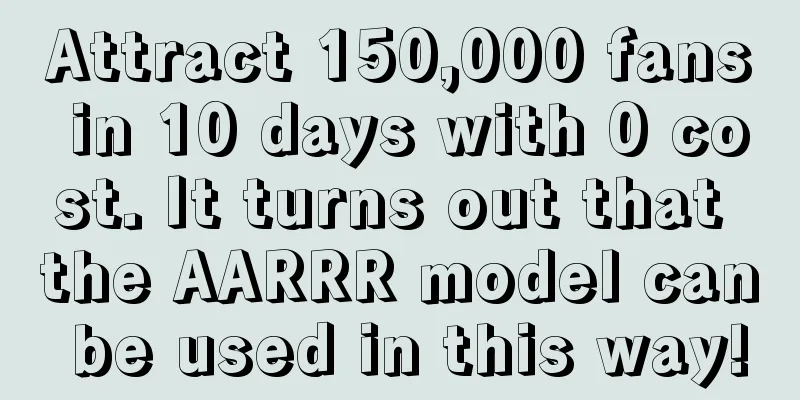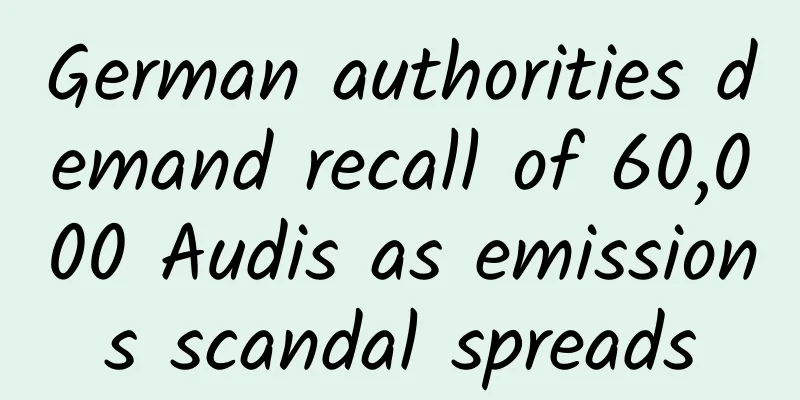The deep logic behind the capital winter: Who is crying "wolf"?
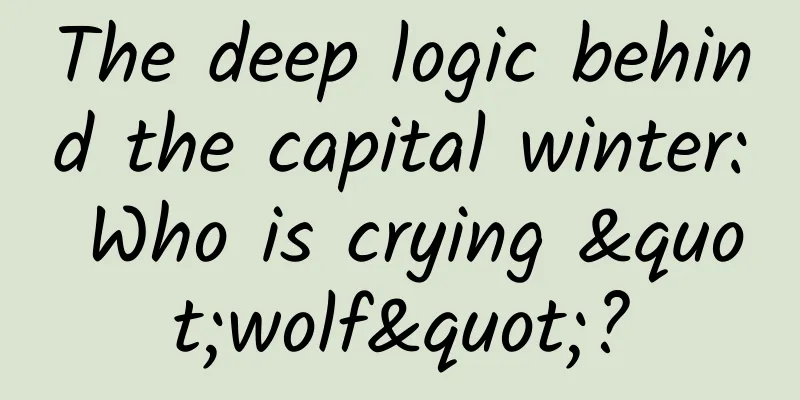
|
The causal logic of the capital winter must be made clear: the capital side believes that it has seen a bubble, which leads to the capital winter. For example, financing difficulties and financing failures fully demonstrate that the capital side is no longer interested in this aspect.
There are two undeniable trends in the current Internet circle: the Internetization of traditional industries and the transformation from PC to mobile Internet; "Internet Plus" and "mass entrepreneurship and innovation" have risen to the national strategic stage. This is what people are experiencing and what is happening now, and it is also the background of the times. Naturally, this capital winter happened in the Internet circle because the Internet is developing too rapidly, especially in China, where the "Chinese Dream" is in its pleasing stage, and the streets are filled with the excited hormones of entrepreneurs. Throughout history, no entrepreneurial boom can compare to the current China, and its scale and boom are far greater than the American Dream of the year, because there are so many Chinese entrepreneurs and they cross over so many fields. But now we seem to have encountered a problem. Whether you deny it or accept it, it is objectively happening. Now let's analyze it in depth. data Dingdong Community, which received 100 million yuan in financing in early 2014, reported that its funding chain had broken. Although the official Dingdong Community denied this, the news that the Beijing company was closed and the Shanghai company was laying off employees has been circulating in the media. In July 2015, Meituan expected to raise $1 billion in Series E funding and be valued at $15 billion. Within two months, Meituan lowered its valuation twice, and the current valuation has been lowered to around $10 billion. Another data is that Meituan is still losing money. Yes, for every dollar they receive, they invest 2.7 yuan. At the same time, in the Series D financing of Mogujie, a female shopping sharing and shopping guide community, in March this year, it originally planned to raise $300 million and be valued at $2 billion, but five months later the valuation was reduced to $1.6 billion, and the famous private equity investment company Carlyle Group no longer participated in the investment negotiations. However, this is only public data, and most of the data has not been exposed. In any case, we can intuitively feel that capital is cooling down. Financing difficulties and broken capital chains are getting worse. At least, the era of "as long as you sit in a certain coffee shop in Beijing and write code, there will be investors asking you if you need investment" has become a thing of the past. The entire capital is cooling down! Analysis: The game between entrepreneurs and capital Capitalists always want to export funds, because only by exporting capital can they get rich returns. It is the duty of capitalists to make a living by investing. But when they think they have seen the bubble of an industry, or when they see the bottleneck of a company's development, they will act cautiously out of fear and will not invest in a certain industry as drastically as they did before when the trend appeared. It must be that the current situation of some industries has frightened them. They see that this industry is not as the entrepreneurs advocate, whether it is subversion, a big trend, or changing certain things. In short, things have happened to the point where the capital parties have begun to think independently. They are no longer bewitched by entrepreneurs or companies that want to expand their scale. They have begun to change from passive to active and begin to believe in their own eyes. Some short-sighted capital parties are always in a state of following the trend, and when they think about whether an industry is a bubble, they only see "now". Analyzing the emergence of the capital winter from the perspective of capitalists, the reasons are not so unified, but complex and diverse. Different capitalists have different investment styles and investment methodologies, but the emergence of the so-called capital winter is not simply caused by a "problem" with a certain capitalist. The essential reason for the emergence of the capital winter is that there are problems with entrepreneurs, and secondly, there are problems with capitalists. The emergence of the capital winter is not related to bubbles. There is no bubble, only entrepreneurs and capitalists who cannot see the real trend. Let’s take O2O as an example and deeply analyze the bubble in the eyes of capitalists and the capital winter in the eyes of entrepreneurs. First of all, the causal logic of the capital winter must be made clear: the capital side believes that it has seen a bubble, which has led to the emergence of the capital winter. For example, financing difficulties and financing failures fully demonstrate that the capital side is no longer interested in this aspect. Why are they no longer interested? Because they cannot see returns, only capital output, they are constantly transfusing blood, but there is no return. This situation is not something that ordinary capitalists can bear. First, the capital pool is insufficient, second, it is out of fear of bubbles, and third, the rational psychology of investment is forced to change to emotional psychology due to investment trends. Although the market is objective and rational, investment is emotional, because investment is for the future, and no capitalist can accurately predict future trends, and can only rely on experience and experience. Digging deeper: The bubble mentioned by the capital side is caused by improper operation of entrepreneurs. Any industry with investment significance will not be a bubble, but any emerging industry will go through an ice period before it can rise. During this period, the market will choose entrepreneurs with advantages and disadvantages, which is quite cruel and rational. On the one hand, for entrepreneurs, most of their efforts and hard work are wasted, and for the capital side, their money is invested but nothing is gained. No capitalist wants to see such a result. When more and more capitalists see such results, or smell unpleasant smells from others and the market in advance, it often causes the emergence of the capital winter effect. And the inducement of this effect is caused by emotional entrepreneurs and emotional capitalists. Emotional entrepreneur? Here are a few key words: starting a business for the sake of making money, starting a business for the sake of starting a business, starting a business to subvert and destroy industry rules, rather than starting a business to make human life better. This type of entrepreneur has no sense of mission, or a weak sense of mission. Most of them copy other people's projects or make imported products of foreign projects. Lack of creative innovation, seize the opportunity at all costs when seeing the wind, and think that being one step ahead is equal to success. Lack of predictive ability (unable to grasp industry trends), unable to grasp product pain points, or no deep understanding of the industry they are engaged in... It is difficult for this type of entrepreneur to succeed, and success has a lot to do with luck. Furthermore, when a company encounters a period of selection, it is difficult for the leadership to grasp the mainstream trend. This type of company is the small and medium-sized enterprises we see. Emotional investor? Following venture capital, seeing that other investors have invested, they think that there is no problem with the project. This type of capitalist has a small amount of funds, but there are many such people, including local tyrants, individual VCs, and local investors active in second- and third-tier cities. Compared with rational capitalists, this type of investor is short-sighted. According to the social law that birds of a feather flock together, this group of investors often invest in some emotional entrepreneurs. Compared with rational entrepreneurs, emotional entrepreneurs have different understandings of the same industry, so it is inevitable to suffer losses. When emotional entrepreneurs encounter troubles, emotional investors will stop investing due to their own "short-sightedness", or directly sentence the industry to death, which is embarrassing for both parties. And there are very few visionary investors and entrepreneurs. There are very few entrepreneurs like Jobs, Musk, Zuckerberg, Jack Ma, and Liu Qiangdong, and there are even fewer excellent and visionary capitalists, almost less than 5% of the total number of investors and entrepreneurs. Rational entrepreneur? Compared with emotional entrepreneurs, rational entrepreneurs only account for less than 5% of the total number of entrepreneurs. The main difference between rational entrepreneurs and emotional entrepreneurs is their ideological realm. Although some low-key rational entrepreneurs will not use words that sound great such as mission and changing the world, they always remind themselves of the mission and value of their existence, such as Ren Zhengfei and Jack Ma, those entrepreneurs who do things down to earth. Foreign entrepreneurs seem to have a special liking for labels such as mission, changing the world, and making human life better. The following is an excerpt from Zuckerberg's speech at Tsinghua University: "Three years ago, we founded Internet.Org to expand the Internet. I told our board of directors that I thought we would spend more than a billion dollars. They asked me: How can this thing make money? I told them: I don't know. But I know that connecting people is our mission, which is very important." From Zuckerberg's words, we can easily analyze the difference between rational entrepreneurs and emotional entrepreneurs. Rational entrepreneurs see things that are more long-term and meaningful. These things are often invisible to emotional entrepreneurs and investors. Rational capitalist? Rational capitalists have the ability to distinguish between emotional and rational entrepreneurs. They have the same foresight as rational entrepreneurs and are good at precise investment. Such investors are often household names and gain both fame and fortune. These returns are closely related to their investment methodology, and the most important thing is their ability to discover the best. Not all investors have this quality. The 80/20 rule also applies in the investment circle, that is, 80% of the wealth is in the hands of 20% of investors, or even higher. How to distinguish emotional investors from rational investors? The method is very simple. Look at the projects they invest in. Emotional investors generally invest in trends that are on the cusp of the trend (rational investors have already laid out their plans before the trend appears). And when they talk to entrepreneurs, they care more about when the company will give them a return. They always want to get a bigger piece of meat in the equity. In short, they value short-term returns. Rational investors are more willing to give control to capable entrepreneurs, and they don’t care how long it will take for the company to make a profit. Generally, after investing, they will no longer ask entrepreneurs, nor participate in the company’s decision-making. They know one thing, they invest in value, that is, value investment. There are many investors who do the things of emotional investors but think they are rational investors. Needless to say, they will not get ideal returns. The above are four types of people who are active in the capital circle and the entrepreneurial circle: emotional entrepreneurs, rational entrepreneurs, emotional investors, and rational capitalists. Their distribution structure is roughly as follows: emotional entrepreneurs account for more than 90% of entrepreneurs, and emotional investors account for more than 90% of investors. When the market in a field is to optimize and screen it, the entrepreneurs who account for more than 90% will be eliminated first. However, due to the improper management of more than 90% of emotional entrepreneurs and the failure of entrepreneurship due to reasons such as failure to grasp the mainstream trend, those investors who focus on short-term interests and are eager for quick success will be pessimistic about the entire industry. This mentality is also emotional, which is a large part of the reason for the emergence of the capital winter. Analysis of specific examples: A glimpse of the whole picture As of 2015, the term "capital winter" has appeared more and more in the media. As the saying goes: There is no smoke without fire, nothing comes without fire. If something is mentioned frequently, it is worthwhile for us to delve into its cause. If we talk about what is the hottest this year and what is really changing people's lifestyles, it is not Internet finance or the sharing economy (which will be hot in the future). It is O2O. When more and more people order food and seats online and consume door-to-door economy, they are still enjoying subsidy dividends. What is subsidy dividend? Do you think that a meal that usually costs dozens of dollars in a store is really worth the price? ! Then you don't know much about the Internet. Every time you order a meal, the website or APP subsidizes you. Entrepreneurs don't have so much money. What should they do? Financing! In fact, every meal you order online is paid by investors. According to entrepreneurs, it is to cultivate consumption habits. In other words, entrepreneurs are using the capital side's money to cultivate your online consumption habits. The embarrassing thing is that the platform is not as profitable as the entrepreneurs say, and even Meituan is losing money. So contradictions arise: the contradiction between entrepreneurs cultivating consumer consumption habits and the difficulty of cultivating consumer habits, and the contradiction between the capital side's fear of industry bubbles and the unsatisfactory status quo of the industry. This is a deeper reason for the emergence of the capital winter. Any new thing that comes will inevitably usher in a period of adjustment between it and the old things. Now the O2O consumption model is adjusting to people's lifestyles. Not everyone is willing to consume in this new way, especially those who do not understand the Internet or are not used to the Internet. They exclude or reject new things in their mindset. Another part of the people belong to the trend following group. They do not reject or cater to it. In fact, most of them are this group in life, and they are also the mainstream group of new economic consumption. As long as there is proper guidance and they meet their three views, they can develop consumption habits in the new economic form. However, almost all websites are paying money. It seems that there is no other way to cultivate consumption habits except paying money. From an investment perspective, the platform is a black hole that absorbs money. Although some investors are optimistic about the future of this industry, they are also unable to do so. Entrepreneurs in this field are also rising and falling, with a variety of models, but the market is cruel. As the saying goes, there is no room for two tigers in one mountain, and in the end, it will only form a situation where many stars support the moon. There are only one or two models that meet the consumption habits of the group in this field, just like Alibaba today. If we look at the Internet bubble during the Alibaba era from today’s perspective, those so-called bubbles were just victims of competition. In other words, online shopping itself is not a bubble, the real bubble is people. The O2O industry itself is also not a bubble. There are only entrepreneurs who fail to grasp the pain points and investors who fail to judge entrepreneurs. They are also emotional. Bubble Gene Theory: It has always been the nature of the bubble that determines that it cannot be blown into a hot air balloon, not because it is a deflated balloon and no one blows it up. The essence of the bubble is the gene, in short: bubble gene. For projects that are bubbles or have many bubble genes, a lot of time and capital investment will only accelerate its collapse! However, people are the gods who create business genes. Since they can create it, they can change it. Everything comes back to people and depends on people! Crowd investment effect: Crowd investment effect refers to the phenomenon of large-scale investment in a field. This phenomenon is not only reflected in the number of investors, but also in the amount of funds. Throughout history, there will be no bubbles in any field where the crowd investment effect occurs, but a large number of investors and entrepreneurs will become victims of this field. This is the stage of market exploration and selection. It will choose entrepreneurs and investors who understand this field best to reward them, and those so-called emotional entrepreneurs and emotional investors will become abandoned children in this field! Rational entrepreneurs and rational capitalists do not have the concept of bubbles. The so-called bubbles are just victims of the market's exploration of itself. Capital Winter vs. Wave Peak and Bottom From 1997 to 2015, the curse of "an economic crisis every seven years" in European and American countries has also come true in China. Because of the different social nature, the economic crisis in Europe and the United States will not have much impact on ordinary Chinese people, at least there will not be the chilling job hunting phenomenon in Europe and the United States. In China, it will bring about a "capital winter" in the capital circle. (Note: Capital winter is often a precursor to an economic crisis.) European and American countries will have an economic crisis every seven years. What is the concept of seven years? It means that the market will fluctuate every seven years. So what causes the fluctuation? My answer is: the adjustment of market development to itself. Every seven years or so, a batch of new concepts will be injected into the old market and have an impact on the entire market. Seven years is a cycle. When the new economic form is integrated into the old economy, the next cycle will come. This cycle may not be seven years, but may be eight years, nine years, or even decades, depending on the times. The faster the civilization develops, or the more developed the civilization, the shorter the cycle, and the slower the civilization develops, the longer the cycle. Now human beings are experiencing a period of rapid development in the transformation of civilization. Whether it is the Internet, Industry 4.0, artificial intelligence, or even the emergence of VR and AR economy, they will lead to a sharp reduction in the economic crisis and capital winter cycle. In order to explore itself, the new economic form often destroys the old economic structure, or improves and subverts the original economic form. These new concepts will appear in various fields. When the old economic form cannot stop the arrival of the new economy, the market will fluctuate. This will trigger another wave of economic crisis, and the amplitude of its wave will depend on the impact of the new concept economy. Why does an economic crisis occur? When the new economy impacts the old economy, a large number of companies and funds will become victims of market adjustments. A large number of so-called "bubbles" will emerge in both the old and new economies. The most intuitive feeling of ordinary people is that it is difficult to find a job, the most intuitive feeling of entrepreneurs is that it is difficult to raise funds, and the most intuitive feeling of the investment circle is: there are many bubbles. The triumph of the new Whether it is an economic crisis or a capital winter, it will not stop the arrival of new things. This is the inevitable result of market selection. It is also a development trend. That is: survival of the fittest, select the best. When the physical retail industry cannot compete with the Internet, it has to cut prices, lay off employees, and most have to close down, so it is difficult to find a job. For Internet entrepreneurs, they are like a group of wolves fighting for a little fat sheep. Only by biting other wolves to death can you eat more meat. For those wolves that are bitten to death, it is a bubble. That is: more than 90% of emotional entrepreneurs. Their failure will give emotional investors a false impression: the industry (O2O) itself is a bubble, so no more funds will be injected into this industry, which will trigger the capital winter effect. Although we all understand this truth, investors do not think so. He is the person involved. They may be desperate and invest all their savings in it. Every turn of the industry vane will make them nervous. At this time, only rational capitalists can treat it as a guest. Let us recall: during the capital winter of the era of Jack Ma and Liu Qiangdong, they had visited almost all mainstream investment institutions but failed to succeed. At that time, people also hyped up the Internet bubble, which I think is also emotional, because today no one thinks that Internet shopping is a bubble anymore. In fact, there is no bubble, only people with narrow vision. |
<<: I want to develop an APP, what should I do if I don’t have a backend?
>>: If Russell were alive today, he would probably tear up WeChat
Recommend
Get rid of the following bad habits and give your Android phone a new lease of life
[[124282]] Switching mobile device platforms is n...
From an ignorant child to an independent otter, what does a little otter go through when growing up?
In the early morning of November 1, 2023, A group...
Analysis of competitive products of Douyin app
With the rapid development of mobile Internet, pe...
Rocket launches fail for different reasons
In 2022, there were 186 orbital launches worldwid...
How did the company, which was tied with Uber and got rid of Shenzhou Yidao, complete its counterattack in just 5 months?
If you are a frequent taxi user, you will definit...
Build your own site group from scratch: you only need to spare 1-2 days a month, and earn about 20,000 yuan a month
Build your own site group from scratch: you only ...
How can bidders build a reasonable account structure to improve promotion effectiveness?
The editor has seen multiple accounts with many w...
A quick guide to becoming a KOL on Xiaohongshu!
It has been two months since Xiaohongshu was remo...
How to break the "medical addiction"? Uncovering the strange baron behind "Munchausen syndrome"
Leviathan Press: Seeing Munchausen syndrome, it i...
Can pull a 6-kilometer-long train! China's hydrogen-powered train debuts for the first time, why is it so powerful?
Author Li Chuanfu With the transformation of the ...
Hejun's Strategic Thinking Course (Issue 24)
Hejun's Strategic Thinking Course (24th Issue...
Look at the soles of your shoes to know your health! Reminder: These 6 types of soles are exposing health problems
The weather is getting colder, and many people ha...
How can an APP quickly build a push operation system?
The Internet population dividend has completely b...
A monkey in an American laboratory escaped during transportation. Why do clinical trials have to pass the "monkey test" first?
|||| Written by reporter Li Li Edited by Ji Jingj...
How to awaken the product’s communication power? Share 6 methods!
Once the product is made, the big challenge is ho...

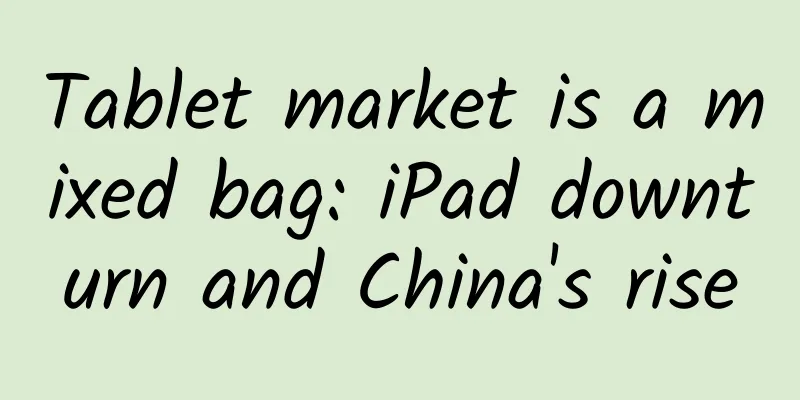
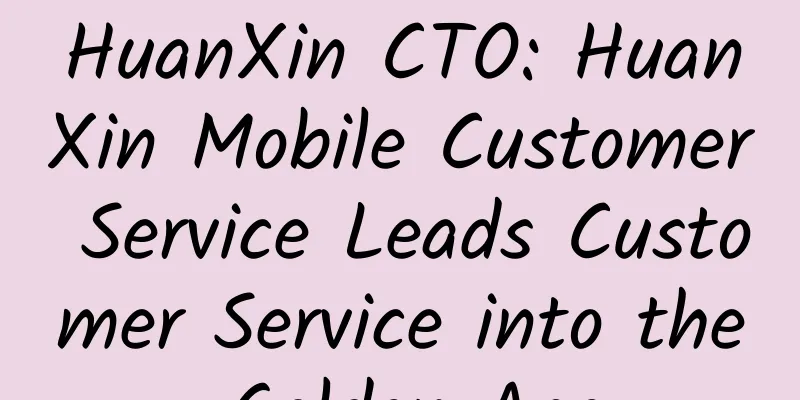



![The second phase of the advanced watercolor illustration course of Yi Qiqi will end in June 2021 [good quality]](/upload/images/67cc29f682a6e.webp)
